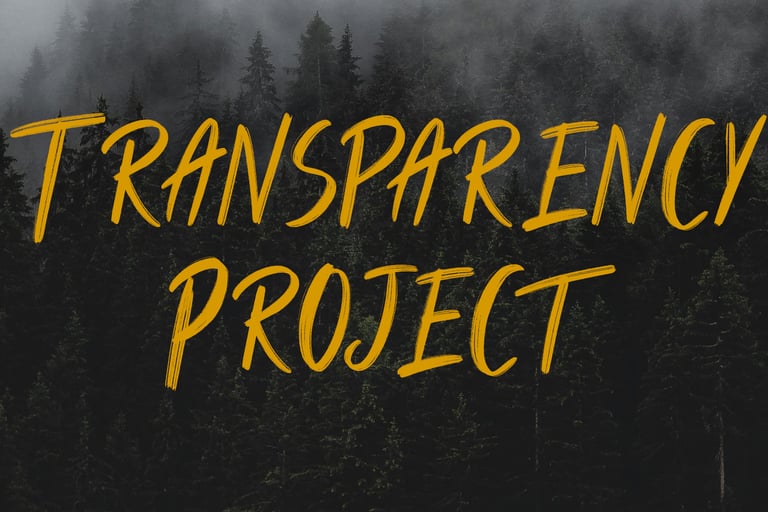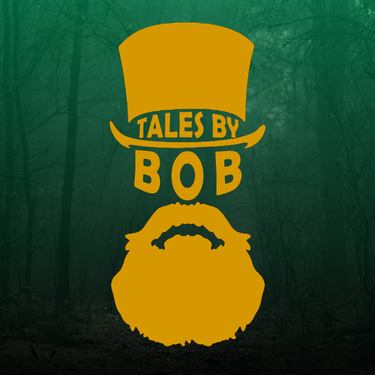
The Calculus of Trad vs Self Publishing 'Capitol of Nightmares'
TRANSPARENCYODDS AND ENDS

So in case you missed it Falstaff Books, through their horror imprint Falstaff Dread, will be publishing my horror novel Capitol of Nightmares. And I wanted to explain why I made the choice to go that route instead of self publishing it.
"But Bob, I've attended your 'how to get published' panel in the past, and you typically advise that if given the choice between traditional publishing with a small press, or self-publishing you would almost always choose to self pub!"
This is true, and I absolutely stand by that statement and mindset, especially for newer authors. The fact of the matter is this:
You probably don't have the knowledge to tell a good small press from a bad one early on.
Most small presses, even if they are reputable, don't bring enough to the table to justify what you have to give up.
All that said, there are absolutely exceptions to every rule. Small press can mean 'we put out a couple of small anthologies a year' or it can mean 'we put out about a hundred novels a year' and all points in between/around. If you want to publish a short story, then sure, go small press with reckless abandon (you're not gonna make any money anyway, let's be real). But for something like a novel, you need to do your research.
What is their social media presence like? If it's only a couple hundred people...then what are they bringing to the table marketing-wise?
Do they do events that are going to get your books in front of people? Or do they only focus on online?
What do authors who have worked with them say? Are they happy?
What's the vibe? Do they seem like good people? Do the authors they publish seem like good people?
So I was absolutely prepared to self publish Capitol of Nightmares. In fact, the only reason I hadn't was it's decently long (102k words) and I just wasn't in the mood to pay to have it edited. That was going to be a decent chunk of change, and I had other books with a higher editing priority. It had been sitting there just waiting on me to email it to Cleo (my editor) basically.
But then Falstaff asked me to submit.
Based on the questions you need ask that I listed out above, I thought it out:
They have a larger social media presence than me, and are not afraid to experiment with things like Tiktok.
They do events ALL THE TIME. My books will be on a table in front of folks at a bunch of events I can't get to.
I am friends with a lot of their authors, and no one has shit talked them to me. The biggest complaint I have heard is 'I wish my book was out already' which...yeah that's gonna be literally every press of any size's biggest complaint lol. Publishing books is slow work. Falstaff is typically faster than bigger presses, but they can never be as fast as self-pub. Just the way things are.
Vibe check: I have yet to meet anyone Falstaff related that's sketchy (well John's a redneck, but what can ya do?). And a couple of folks who I intensely, intensely respect are put out by them (including my editor Rachel Brune).
Also, Falstaff is very well connected with the Southern Convention circuit. Most of the fan run cons have some sort of presence from someone Falstaff. It's a very known element within those circles.
It's not all sunshine and roses however.
The odds are that I would have made more money in direct dollars by self publishing it. That's just the nature of the beast. That wouldn't be true for everyone who sells through them, but I hustle enough on my own that between the in person events I do and my online promoting I would sell enough to make more that way.
So why do it then? Why opt to (probably) make less money?
For me it's all about the intangibles.
I am gambling that what I give up in direct dollars from sales, I will make back in intangible benefits.
Falstaff is well known in the conventions I like to take part in. It will make it easier for me to become a guest at these conventions. This gives me more selling opportunities, as well as more chances to panel. Paneling is a fantastic way to grow my brand, and I am always looking to do more.
I will be traditionally published (yes, technically I already am, but that was a terrible experience and I rarely mention it. Those books are under a different name for a reason). Should that matter? In a perfect world, no. But there is no two ways about it: there will always be a group of people for whom you are simply not credible as an author if all you do is self pub. Thankfully that's an ever decreasing number, but it's still a factor. Being trad published makes my self pub more credible in their eyes.
It makes me more attractive to the folks who run workshops and offer speaking opportunities. I have really been trying to amp this up over the past year, and by being self and trad published, it opens more doors for me.
Lets use some totally bogus numbers, understanding I really am pulling these numbers out of my ass. Lets say if I self-pubbed it I would make 1k off it a year. And lets say by Falstaff putting it out I make 300. That's a loss of 700 bucks. That's...not great. But lets say that because I am now trad published through them I:
Get into Jordancon as a guest next year, and get to sell books (my white whale of conventions). And I make a profit of 400 bucks (a reasonable number, I just cleared 550 at my last event).
And I then get to do a workshop with the AWP that nets me a 250 dollar speaking fee.
Then I get onto more panels at DragonCon, which gets me in front of a bunch of folks who I would have never run into, who end up buying some of my books to the tune of a hundred bucks.
Boom, I've made more money than I would have, by 50 bucks. Now of course all these numbers are bullshit and made up. But you can see how it could play out. But I know me, and how I operate, and I think I'm right about this.
But also, and this doesn't factor into anything business related: for me this is sorta coming full circle. I went self-pub on the recommendation of John Hartness during a mentor session at Dragon Con. In that talk, he broached this topic in a general sense, starting my brain down this thought process. And now he's publishing me. It just feels...right.
In the immortal words of Bear Bryant, when asked why he returned to Alabama in 1958 to coach the Crimson Tide:
Momma called. And when Momma calls, you just have to come runnin'


